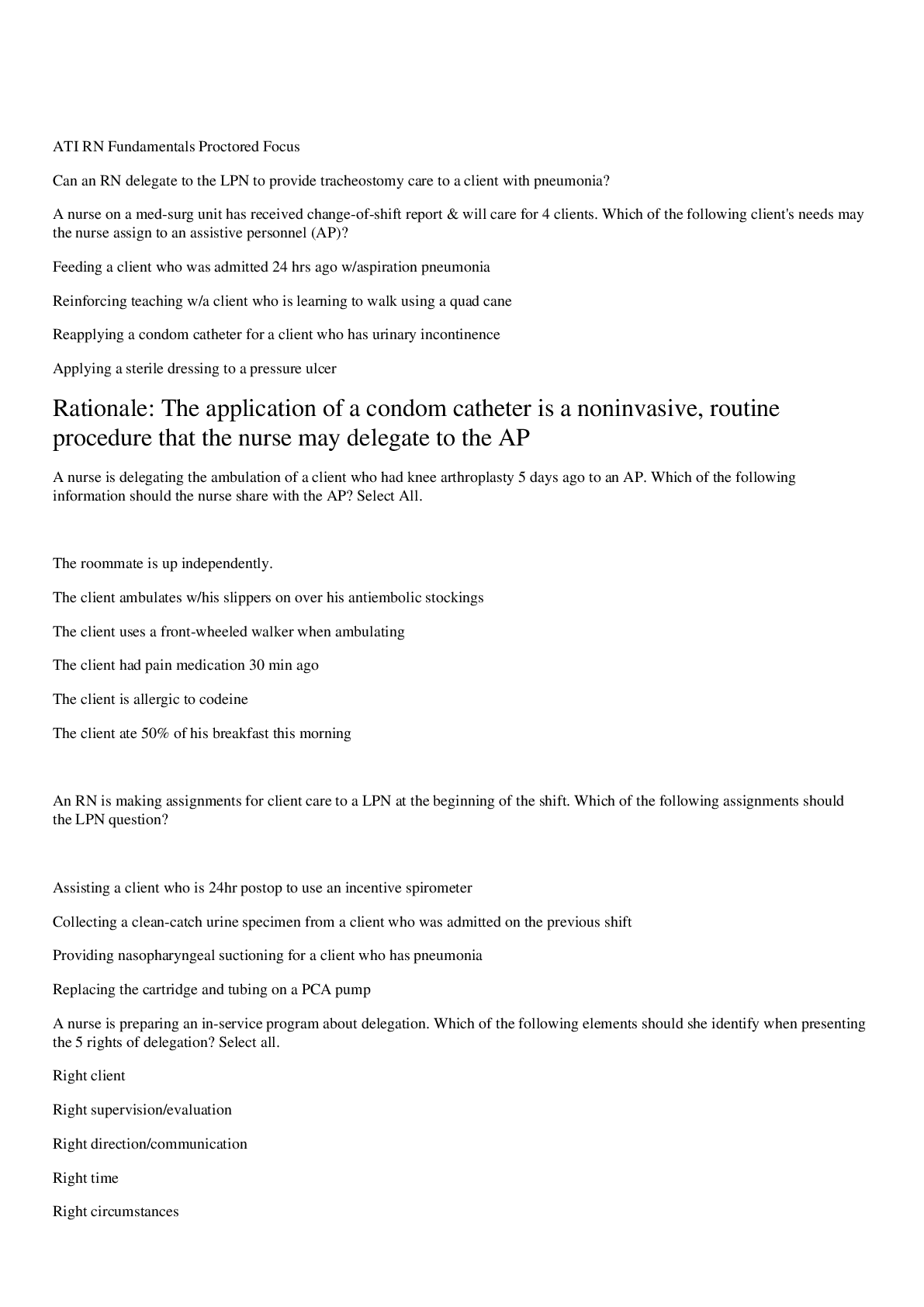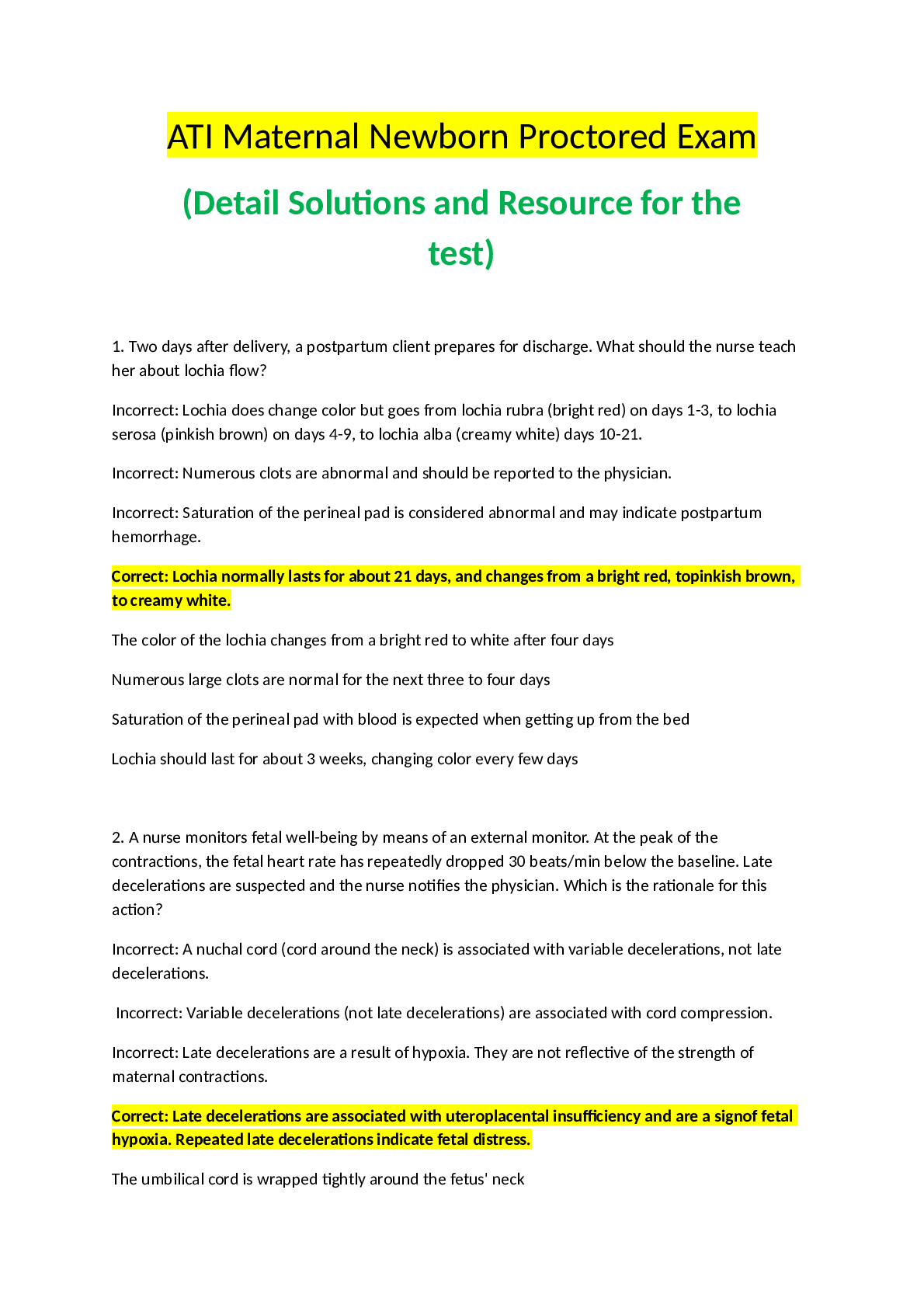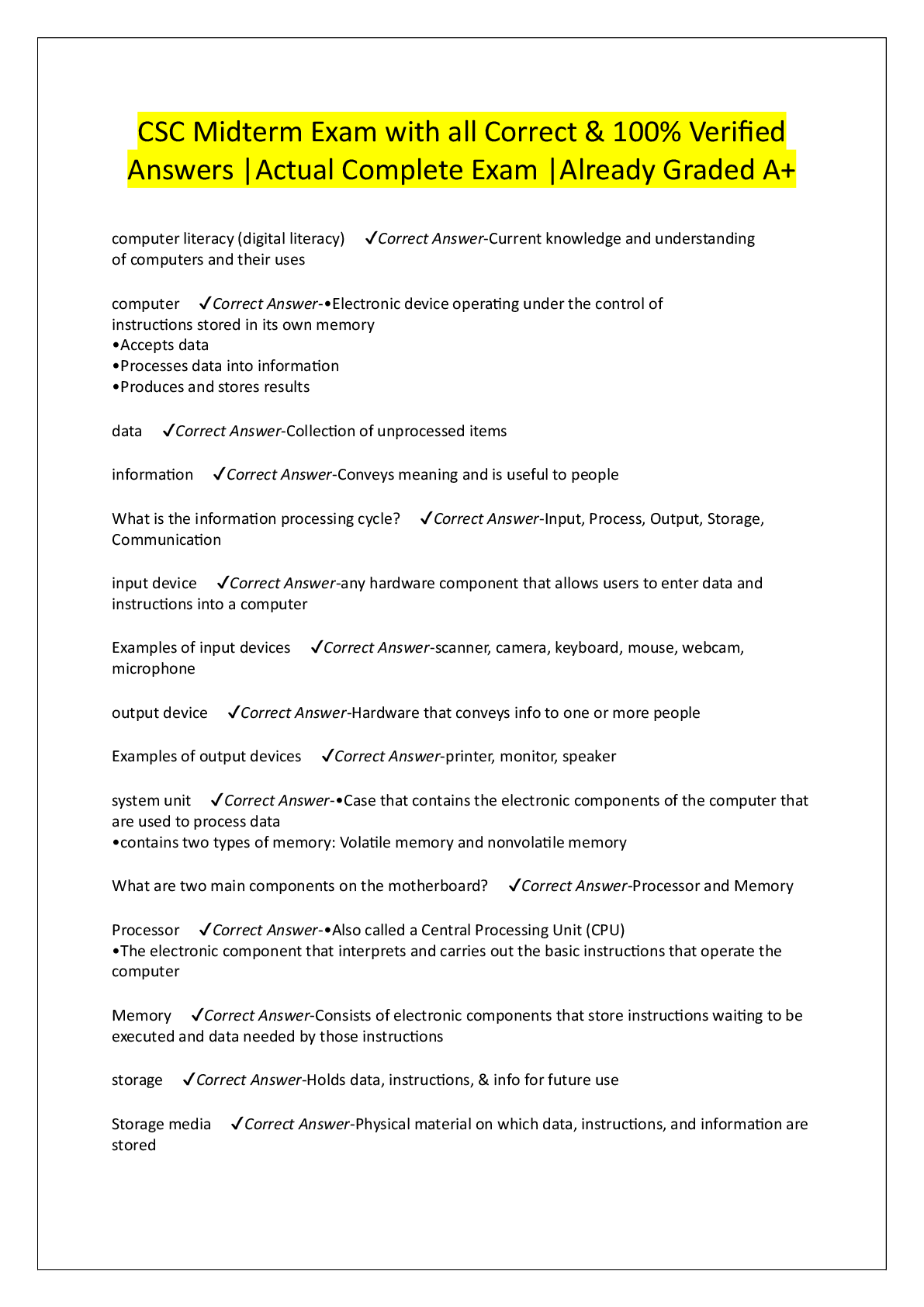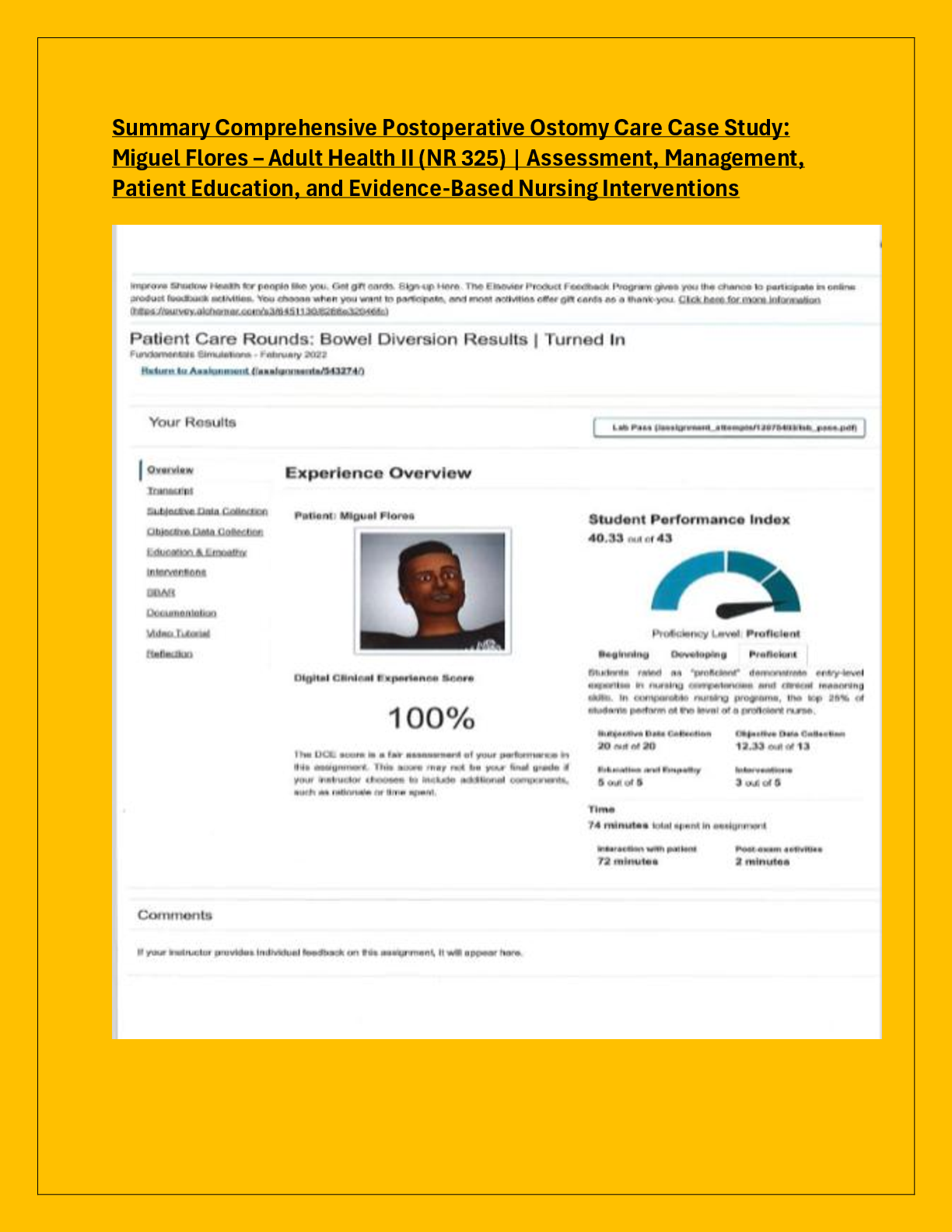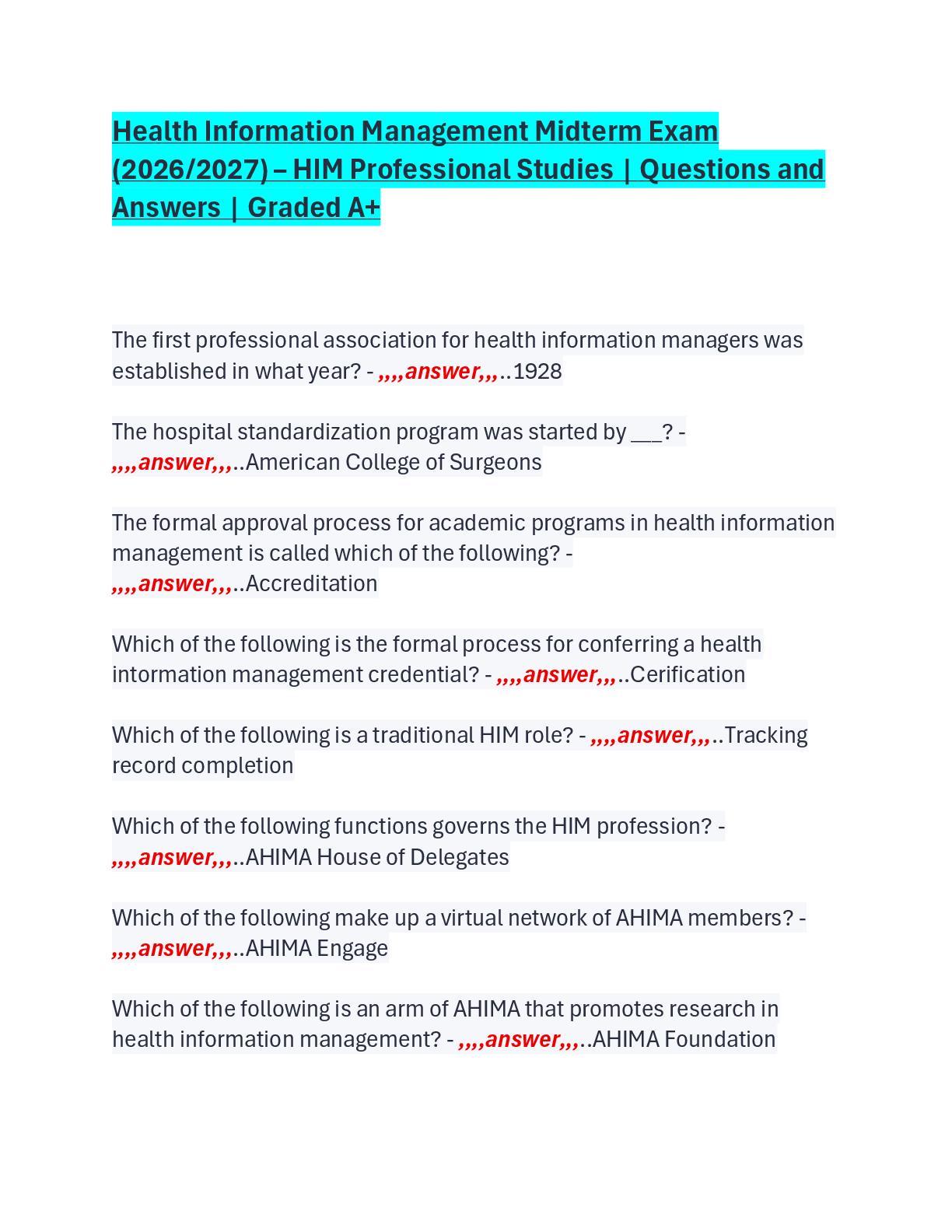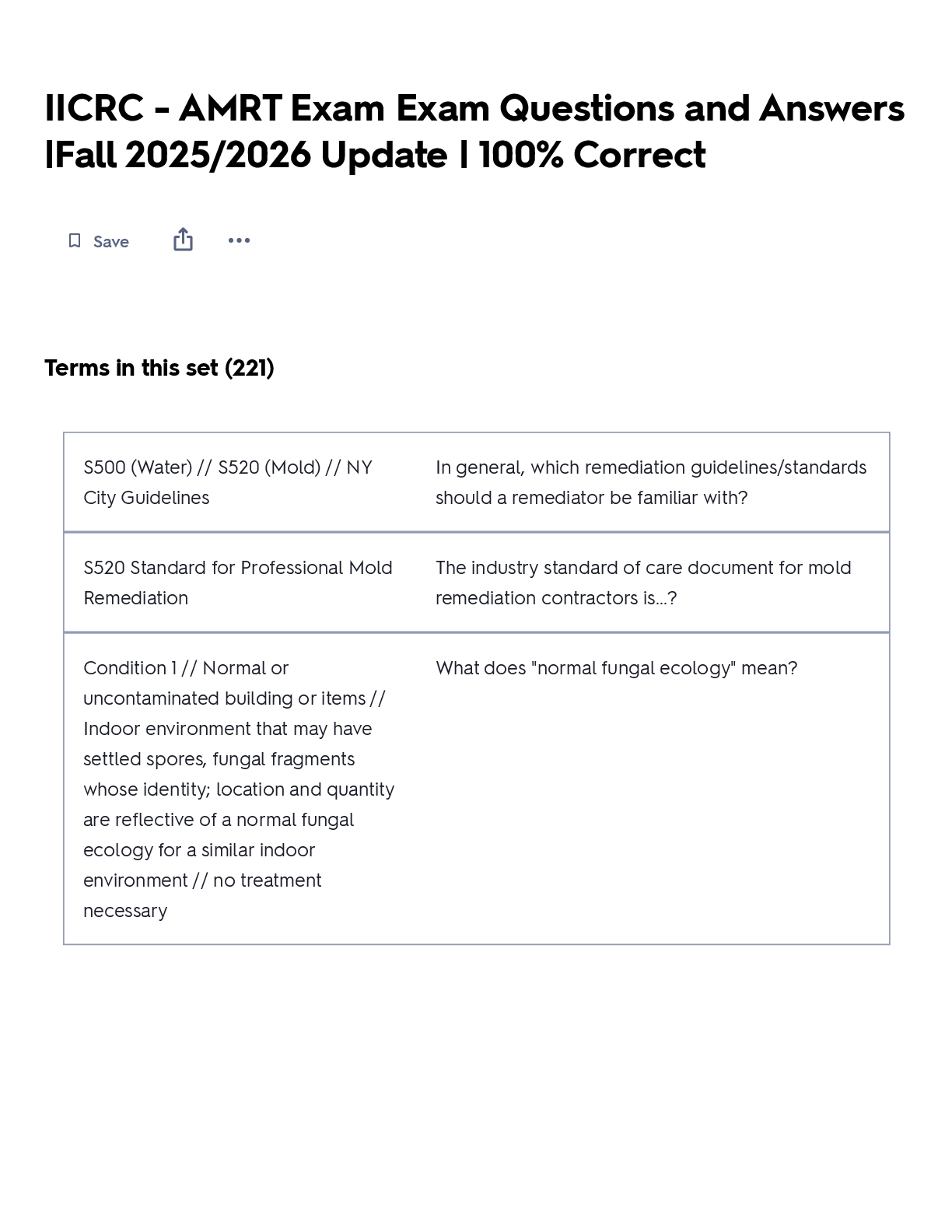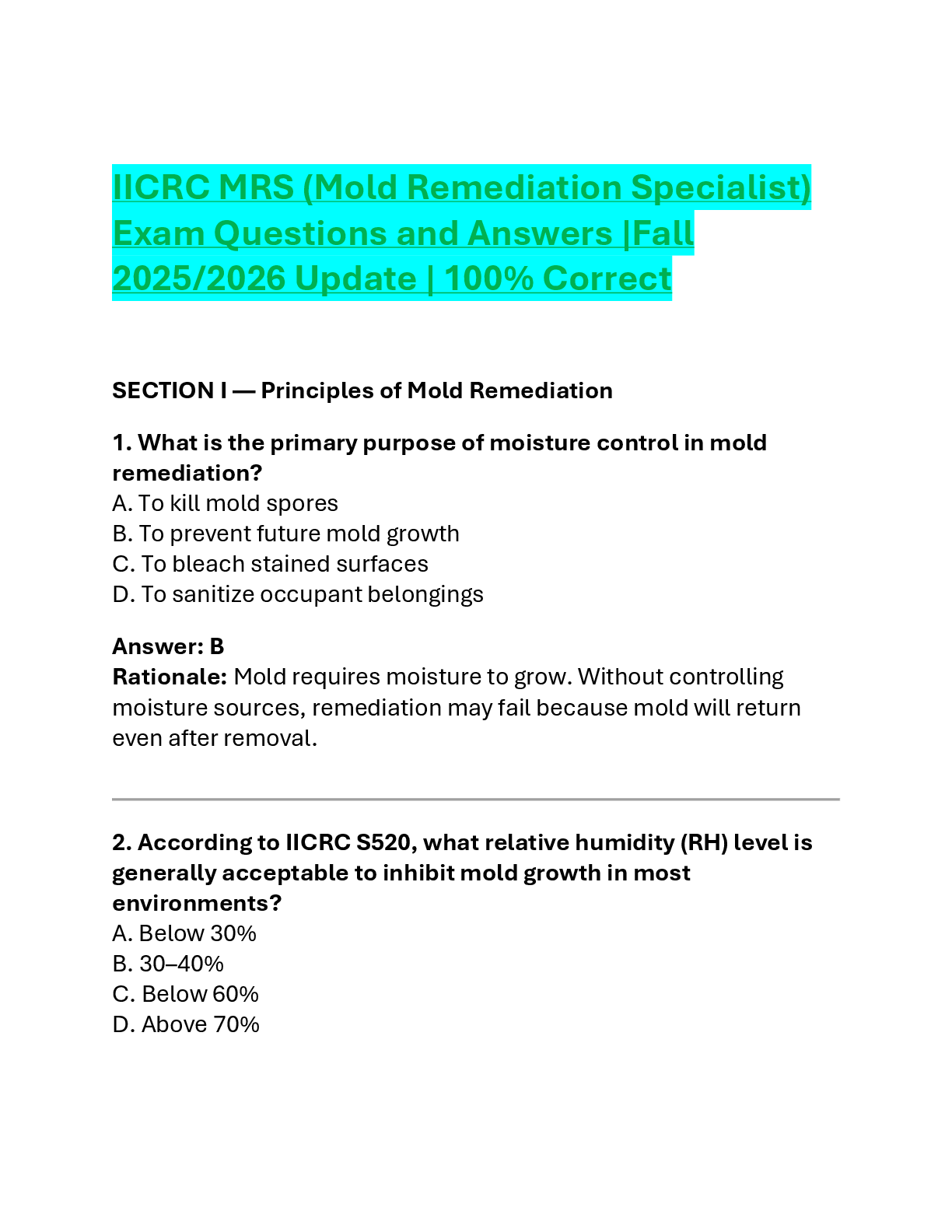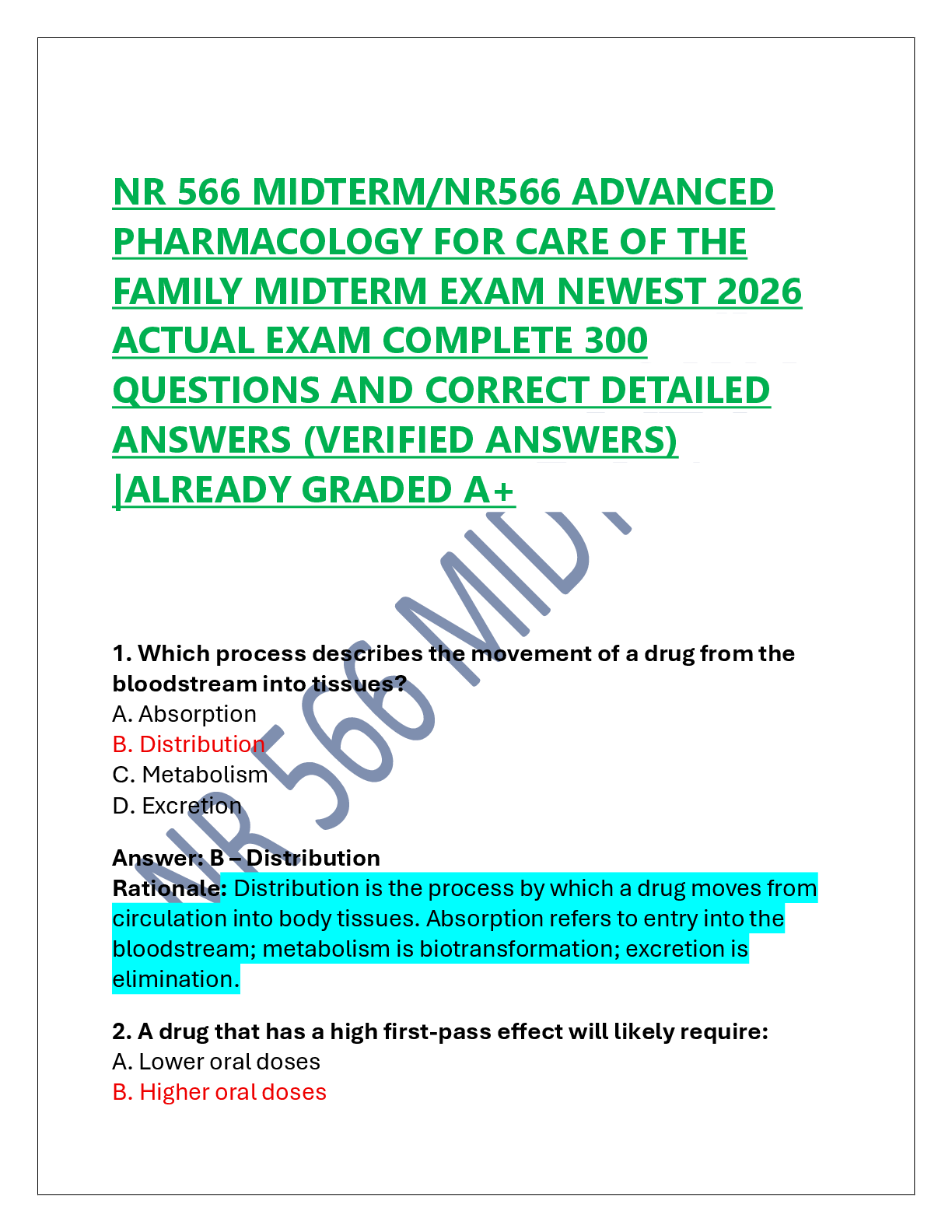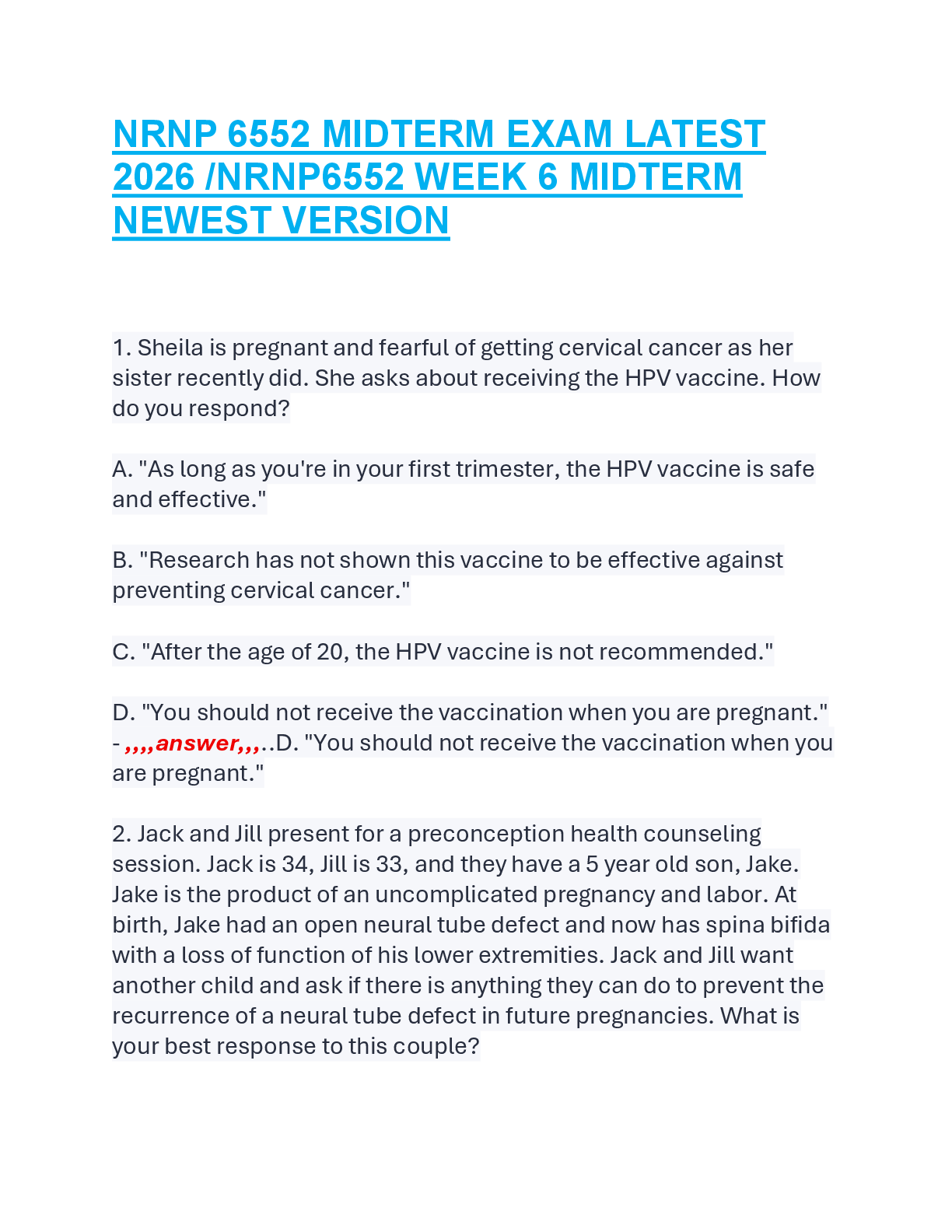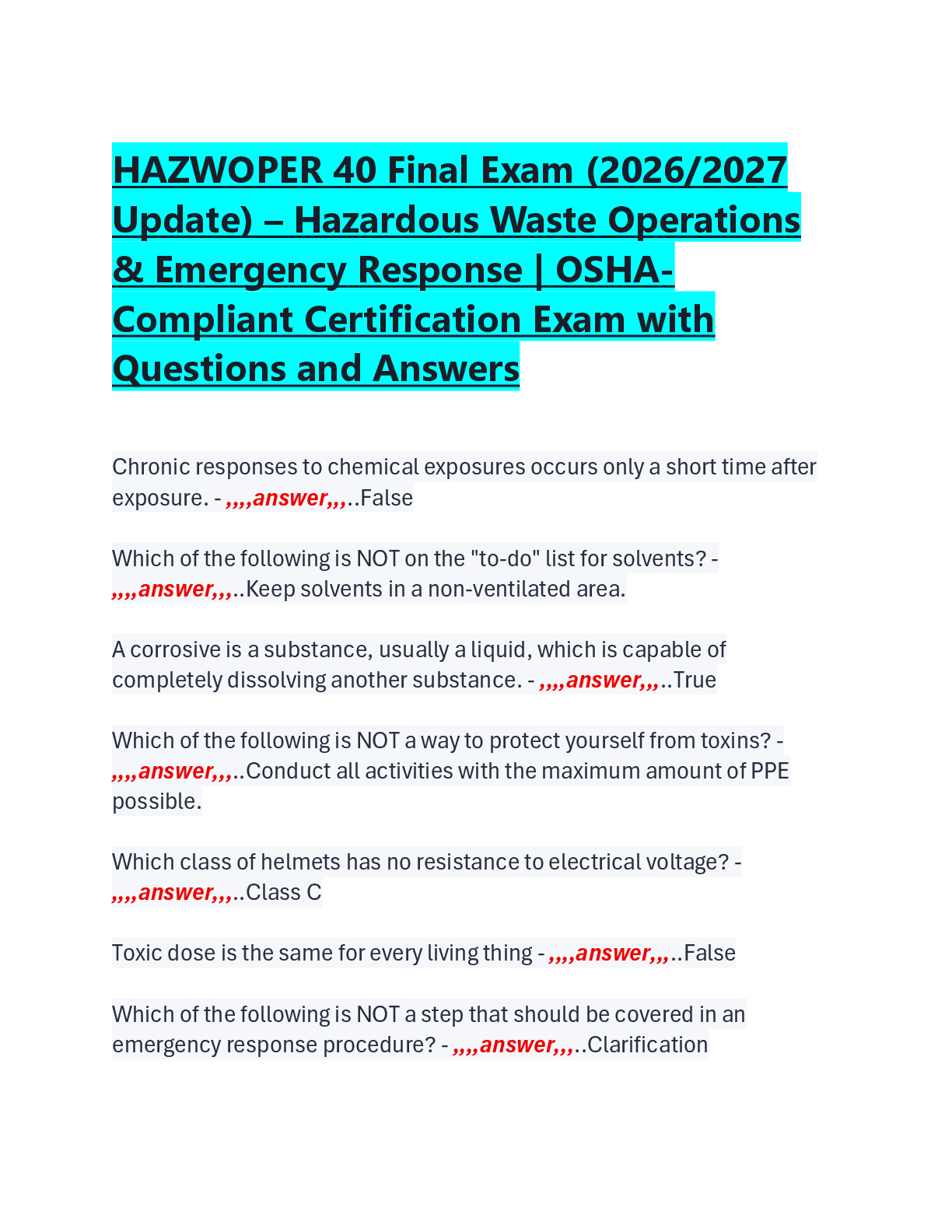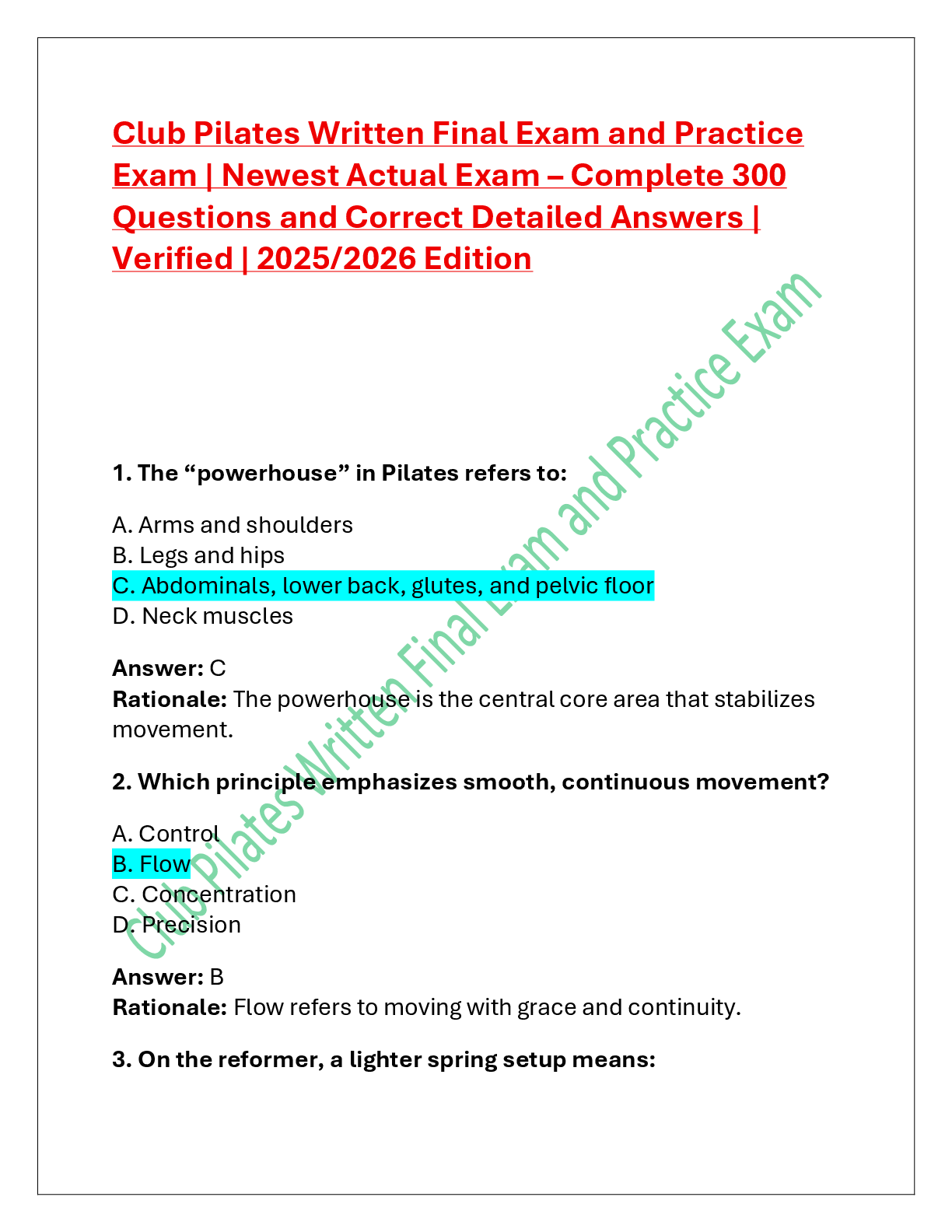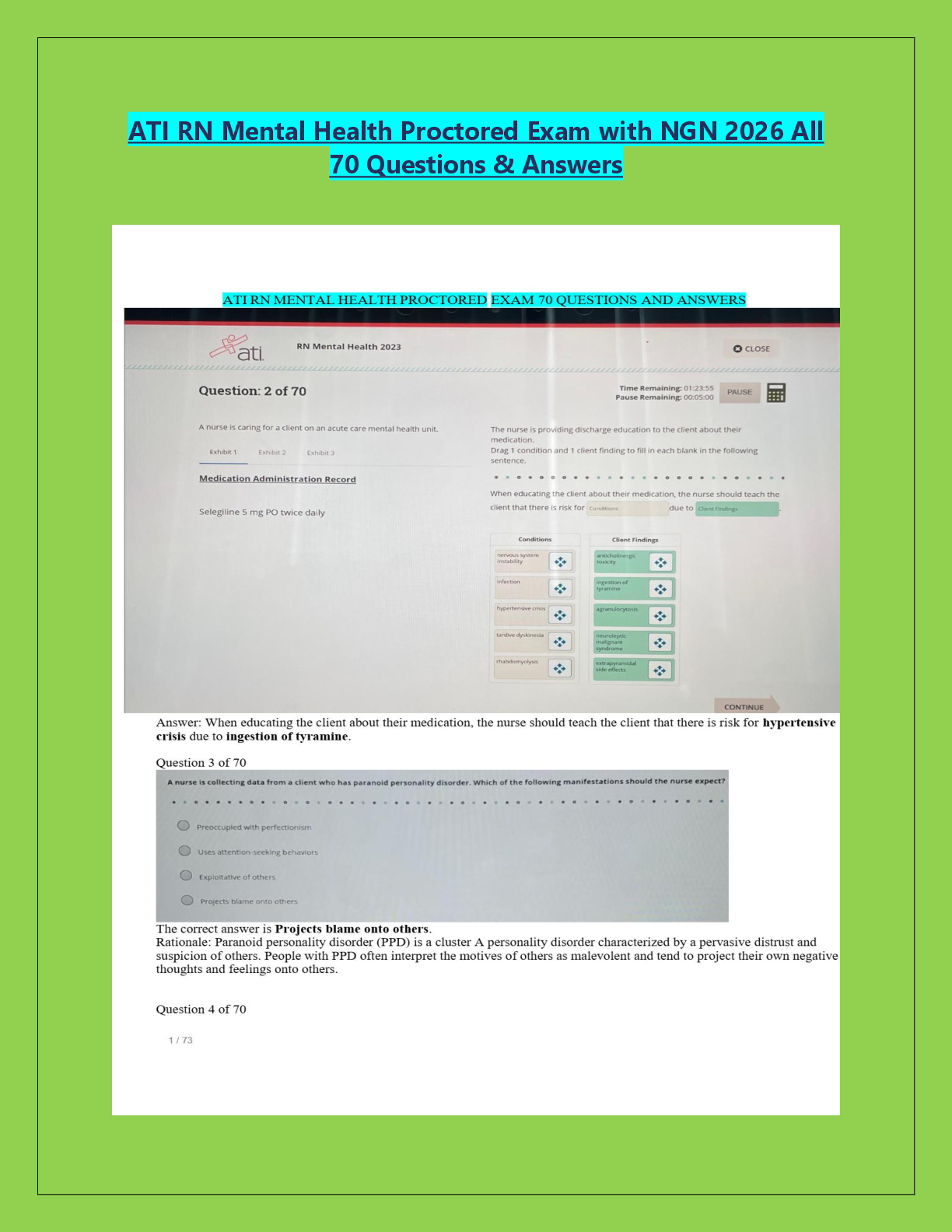HESI A2 Health Information Systems Complete Test Preparation Test Bank
Document Content and Description Below
SECTION I - READING COMPREHENSION. Directions: The following questions are based on a number of reading passages. Each passage is followed by a series of questions. Read each passage carefully, and ... then answer the questions based on it. You may reread the passage as often as you wish. When you have finished answering the questions based on one passage, go right on to the next passage. Choose the best answer based on the information given and implied. Questions 1 – 4 refer to the following passage. Passage 1 - Infectious Disease An infectious disease is a clinically evident illness resulting from the presence of pathogenic agents, such as viruses, bacteria, fungi, protozoa, multi-cellular parasites, and unusual proteins known as prions. Infectious pathologies are also called communicable diseases or transmissible diseases, due to their potential of transmission from one person or species to another by a replicating agent (as opposed to a toxin). Transmission of an infectious disease can occur in many different ways. Physical contact, liquids, food, body fluids, contaminated objects, and airborne inhalation can all transmit infectingagents. Transmissible diseases that occur through contact with an ill person, or objects touched by them, are especially infective, and are sometimes referred to as contagious diseases. Communicable diseases that require a more specialized route of infection, such as through blood or needle transmission, or sexual transmission, are usually not regarded as contagious. The term infectivity describes the ability of an organism to enter, survive and multiply in the host, while the infectiousness of a disease indicates the comparative ease with which the disease is transmitted. An infection however, is not synonymous with an infectious disease, as an infection may not cause important clinical symptoms. 1 1. What can we infer from the first paragraph in this passage? a. Sickness from a toxin can be easily transmitted from one person to another. b. Sickness from an infectious disease can be easily transmitted from one person to another. c. Few sicknesses are transmitted from one person to another. d. Infectious diseases are easily treated. 2. What are two other names for infections’ pathologies? a. Communicable diseases or transmissible diseases b. Communicable diseases or terminal diseases c. Transmissible diseases or preventable diseases d. Communicative diseases or unstable diseases 3. What does infectivity describe? a. The inability of an organism to multiply in the host b. The inability of an organism to reproduce c. The ability of an organism to enter, survive and multiply in the host d. The ability of an organism to reproduce in the host 4. How do we know an infection is not synonymous with an infectious disease? a. Because an infectious disease destroys infections with enough time. b. Because an infection may not cause important clinical symptoms or impair host function. c. We do not. The two are synonymous. d. Because an infection is too fatal to be an infectious disease. Questions 5 – 8 refer to the following passage. Passage 2 - Viruses A virus (from the Latin virus meaning toxin or poison) is a small infectious agent that can replicate only inside the living cells of other organisms. Most viruses are too small to be seen directly with a microscope. Viruses infect all typ [Show More]
Last updated: 3 years ago
Preview 1 out of 154 pages

Buy this document to get the full access instantly
Instant Download Access after purchase
Buy NowInstant download
We Accept:

Reviews( 0 )
$23.50
Can't find what you want? Try our AI powered Search
Document information
Connected school, study & course
About the document
Uploaded On
Aug 08, 2021
Number of pages
154
Written in
All
Additional information
This document has been written for:
Uploaded
Aug 08, 2021
Downloads
0
Views
91






